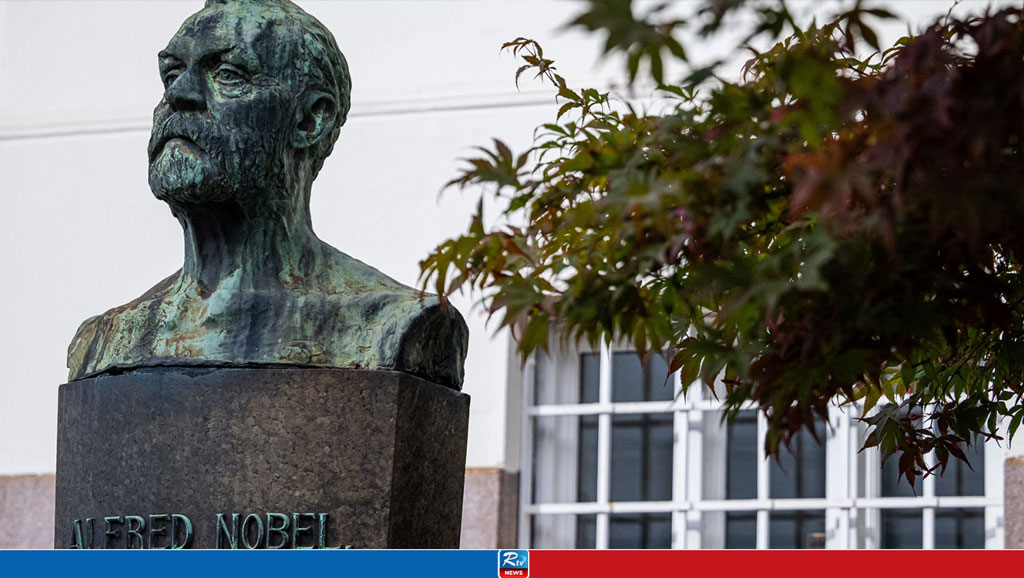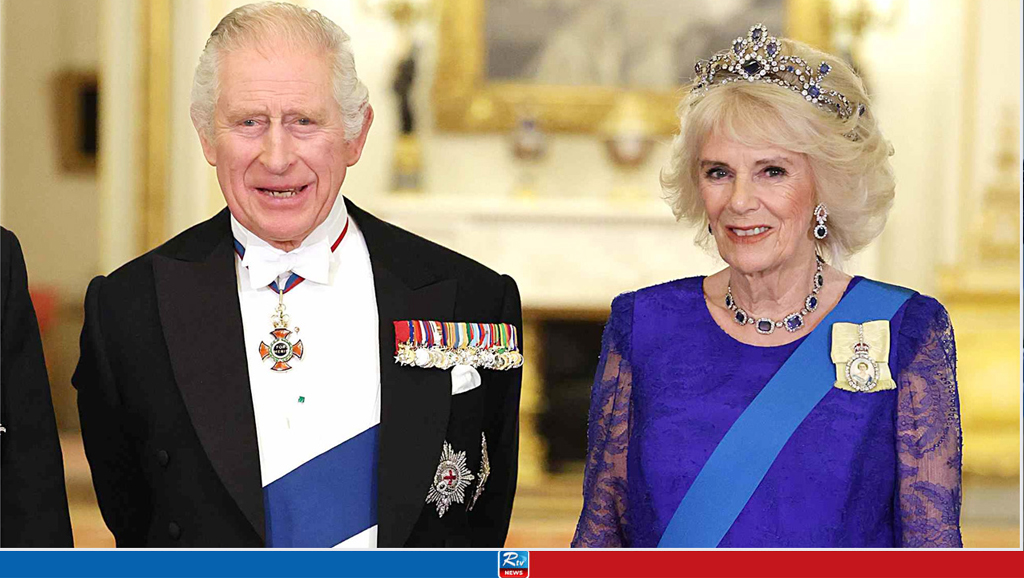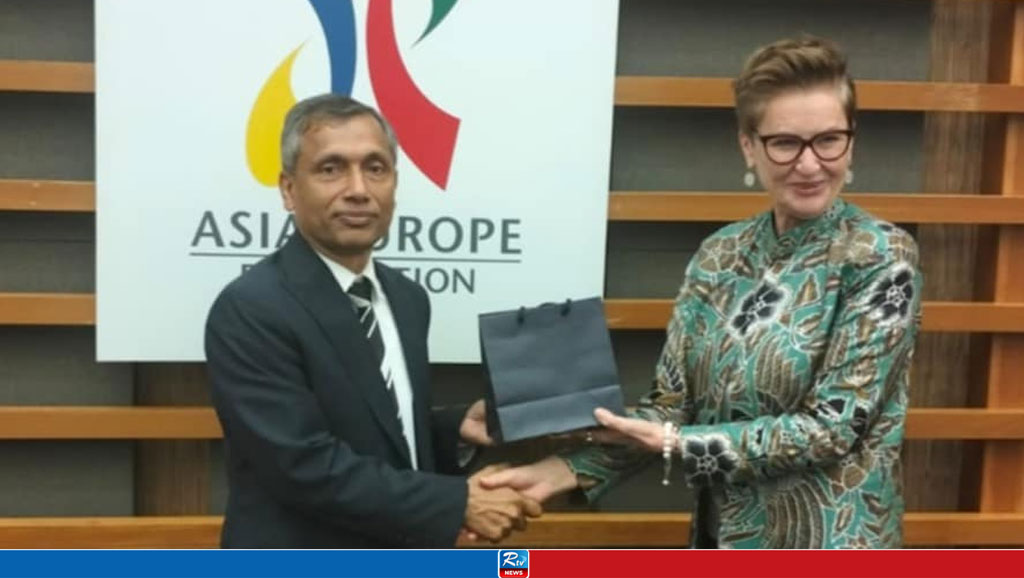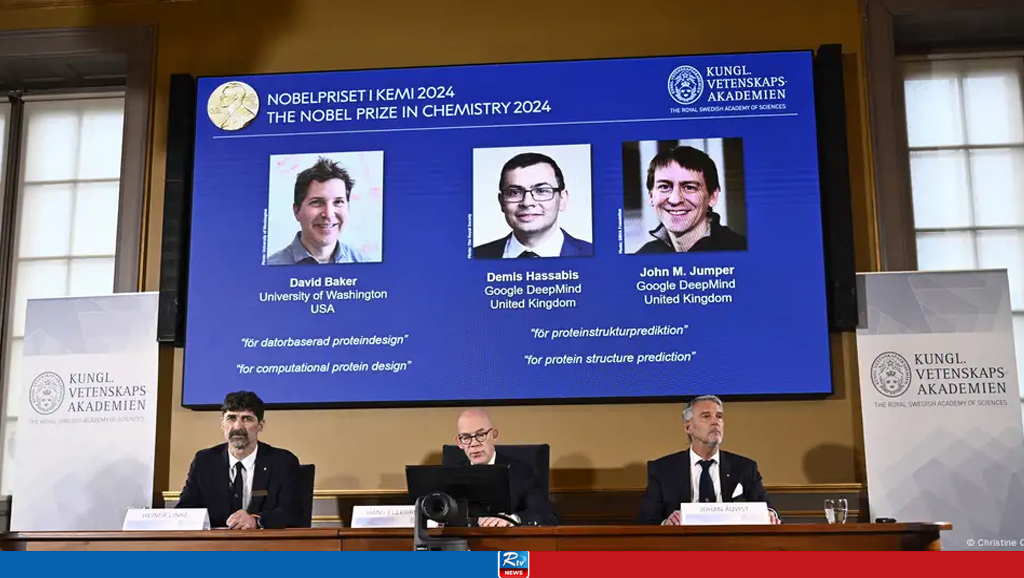'Invisibility' and Quantum Computing Tipped for Physics Nobel

An "invisibility cloak", an atomic force microscope or quantum computing are some of the scientific achievements that could win a Nobel prize in physics Tuesday.
The award, to be announced at 11:45 am (0945 GMT) in Stockholm, is the second Nobel of the season after the Medicine Prize on Monday was awarded to American scientists Victor Ambros and Gary Ruvkun.
The US duo were honoured for their discovery of microRNA and its role in how genes are regulated.
Predicting a winner is always tricky but this year, Nobel buzz has spotlighted, among others, Israeli-British physicist David Deutsch, a professor at the University of Oxford, and American mathematician Peter Shor.
David Pendlebury, head of analytics group Clarivate, which monitors potential Nobel science laureates, told AFP the duo might be honoured "for their work in quantum algorithms and quantum computing".
Pendlebury said the two researchers were among their top picks given the number of citations their papers had received.
At the same time, he said it would be "surprising" if the Nobel jury awarded quantum mechanics again, just two years after Alain Aspect of France, John Clauser of the United States and Austria's Anton Zeilinger won for their work into quantum entanglement.
'Invisibility cloak'
In the field of quantum mechanics, other notables are Israeli Yakir Aharonov and Briton Michael Berry, who have both made discoveries which now bear their names.
Another favourite who has been speculated about as a potential winner for years is Britain's John B. Pendry, who has become famous for his "invisibility cloak", using materials to bend light to make objects invisible.
Italian-American Federico Capasso has also been mentioned for research into photonics -- the science of light waves -- and contributing to the invention and development of the quantum cascade laser.
Lars Brostrom, science editor at Swedish Radio, said one potential winner could be Swiss physicist Christoph Gerber "for the invention of the atomic force microscope together with Gerd Binnig and Calvin Quate".
The Nobel Prize only honours living scientists and Quate died in 2019, but if Germany's Binnig were to share the honour it would be his second Nobel Prize in Physics after he won it in 1986 for the "design of the scanning tunnelling microscope".
Another pick for Brostrom would be Canadian-American astronomer Sara Seager.
Brostrom told AFP that Seager could be awarded for "new ways to find signatures of life in planetary atmospheres, how to analyse the atmospheres of exoplanets to find those that could harbour life".
The Nobel jury has a tradition of honouring multiple researchers at once, and another trio among those speculated about is Canadian-born Allan MacDonald, Israeli Rafi Bistritzer and Spain's Pablo Jarillo-Herrero.
The three already won the 2020 Wolf Prize in Physics "for pioneering theoretical and experimental work on twisted bilayer graphene", a discovery that has been hailed as having the potential to lead to an energy revolution.
'Slow light'
Physics World's online editor Hamish Johnston speculated in a podcast ahead of the prize that Danish physicist Lene Hau might be in line for a nod "for her work on slow light".
In 1999, Hau and her team managed to slow down light by passing it through a cloud of atoms deep chilled into a slow-moving state known as Bose-Einstein condensate.
Two years later, they managed to stop it completely, before speeding it back up.
Awarded in 1901, the Nobel Prizes honour those who have, in the words of prize creator and scientist Alfred Nobel, "conferred the greatest benefit on humankind".
Last year, the Nobel Prize in Physics went to France's Pierre Agostini, Hungarian-Austrian Ferenc Krausz and Franco-Swede Anne L'Huillier for research using ultra-quick light flashes that enable the study of electrons inside atoms and molecules.
The physics prize will be followed by the chemistry prize on Wednesday, with the highly watched literature and peace prizes to be announced on Thursday and Friday respectively.
The Economics Prize wraps up the 2024 Nobel season on October 14.
The winners will receive their prize, consisting of a diploma, a gold medal and a $1 million cheque, from King Carl XVI Gustaf at a formal ceremony in Stockholm on December 10, the anniversary of the 1896 death of scientist Alfred Nobel who created the prizes in his last will.
Recent Nobel Prize winners list in Physics:
The Nobel Prize in Physics 2023
Pierre Agostini, Ferenc Krausz and Anne L'Huillier "for experimental methods that generate attosecond pulses of light for the study of electron dynamics in the matter."
The Nobel Prize in Physics 2022
Alain Aspect, John Clauser and Anton Zeilinger "for experiments with entangled photons, establishing the violation of Bell inequalities and pioneering quantum information science."
The Nobel Prize in Physics 2021
Syukuro Manabe and Klaus Hasselmann "for the physical modelling of Earth’s climate, quantifying variability and reliably predicting global warming."
Giorgio Parisi "for the discovery of the interplay of disorder and fluctuations in physical systems from atomic to planetary scales."
The Nobel Prize in Physics 2020
Roger Penrose "for the discovery that black hole formation is a robust prediction of the general theory of relativity."
Reinhard Genzel and Andrea Ghez "for the discovery of a supermassive compact object at the centre of our galaxy."
The Nobel Prize in Physics 2019
James Peebles "for theoretical discoveries in physical cosmology."
Michel Mayor and Didier Queloz "for the discovery of an exoplanet orbiting a solar-type star."
The Nobel Prize in Physics 2018
Arthur Ashkin "for the optical tweezers and their application to biological systems."
Gérard Mourou and Donna Strickland "for their method of generating high-intensity, ultra-short optical pulses."
The Nobel Prize in Physics 2017
Rainer Weiss, Barry C. Barish and Kip S. Thorne "for decisive contributions to the LIGO detector and the observation of gravitational waves."
The Nobel Prize in Physics 2016
David J. Thouless, F. Duncan M. Haldane and J. Michael Kosterlitz "for theoretical discoveries of topological phase transitions and topological phases of matter."
The Nobel Prize in Physics 2015
Takaaki Kajita and Arthur B. McDonald "for the discovery of neutrino oscillations, which shows that neutrinos have mass."
The Nobel Prize in Physics 2014
Isamu Akasaki, Hiroshi Amano and Shuji Nakamura "for the invention of efficient blue light-emitting diodes which has enabled bright and energy-saving white light sources."
The Nobel Prize in Physics 2013
François Englert and Peter Higgs "for the theoretical discovery of a mechanism that contributes to our understanding of the origin of mass of subatomic particles, and which recently was confirmed through the discovery of the predicted fundamental particle, by the ATLAS and CMS experiments at CERN's Large Hadron Collider."
The Nobel Prize in Physics 2012
Serge Haroche and David J. Wineland "for ground-breaking experimental methods that enable measuring and manipulation of individual quantum systems."
The Nobel Prize in Physics 2011
Saul Perlmutter, Brian P. Schmidt and Adam G. Riess "for the discovery of the accelerating expansion of the Universe through observations of distant supernovae."
The Nobel Prize in Physics 2010
Andre Geim and Konstantin Novoselov "for groundbreaking experiments regarding the two-dimensional material graphene."
Comments
British King Charles May Visit Bangladesh

ASEF Executive Committee Meeting Held in Singapore

UNGA Decides to Hold High-Level Conference in 2025 to Propose a Time-Bound Plan

Calin Georgescu Leads Romania's Presidential Race in First Round

DHL Cargo Plane Crashes Near Vilnius Airport in Lithuania

Japan's Space Agency Aborts Epsilon S Rocket Test After Fire

Mahathir Calls for Unity Among Bangladesh’s Political Leaders


 Live Tv
Live Tv




